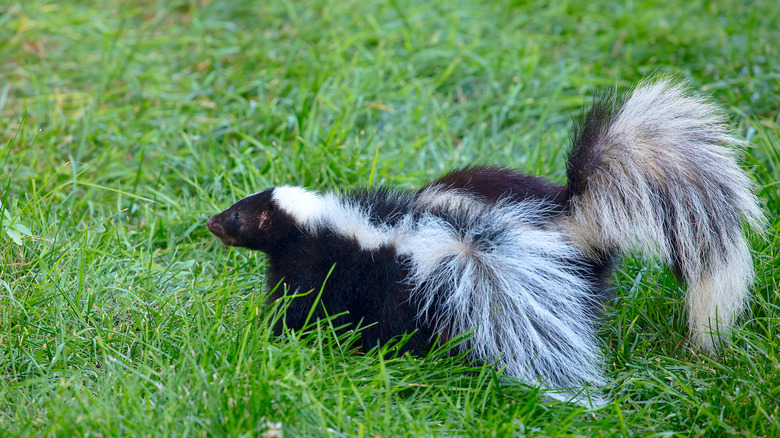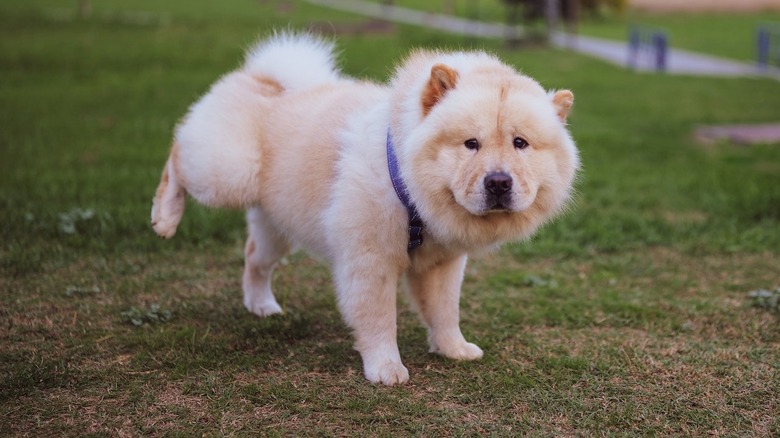How Your Pet May Be Naturally Keeping Skunks Out Of Your Yard
Training your fur baby to potty outside has its privileges. Not only does it eliminate the need to constantly find and clean stubborn pet urine stains in your home, but it also reduces the number of pests infiltrating your garden. And if one of those critters has an instantly-recognizable white stripe that cuts through its jet-black fur along with an even more prominent foul-smelling defensive mechanism, all the better to keep it off your property. Unbeknownst to you, your pet may be keeping skunks out of your yard simply by relieving themselves around the space.
If you've ever had to remove the stench of soaked-in pet urine on your floors, you know the experience is unpleasant at best. Dog urine's repulsive odor is derived from hormones, uric acid, and ammonia and can cause bacterial growth. As the ammonia in the urine becomes more concentrated, its scent becomes more pungent — to both humans and skunks. This fact is a powerful weapon in the battle to keep the primarily-nocturnal mammals from ravaging your vegetable garden, rifling through your trash cans, and sheltering under your deck or shed. Fortunately, you can fight fire with fire by placing your pet's putrid-smelling pee around your property to prevent skunks from invading your space and potentially unleashing their sulfurous spray. Ultimately, it's much more practical to use your pet's urine to proactively repel skunks rather than deal with these animals long-lasting, chemical-based spray that's capable of permeating every inch of your estate.
Tips for using pet urine to keep skunks out of your yard
Skunks view dogs as predators and generally avoid cats. Consequently, if they sense their presence in any capacity — including smelling their urine — they will hightail it in the opposite direction. However, simply allowing your pet to randomly use your yard as a gigantic toilet lacks strategy. In order to increase the effectiveness of urine as a skunk repellent, it pays to be observant. Take note of skunk activity around your home including burrows, holes in flower beds, disturbed bird feeders, or overturned garbage cans.
Once you've identified target areas, either train your fur baby to pee there or collect your pet's urine and apply it to the spots yourself. If you choose the latter, nonchalantly follow your four-legged friend outside when they go to relieve themselves. Be sure to bring along a tray or shallow container to collect the urine. Then, as Fido is getting ready to tinkle, discreetly slide the receptacle under his steady stream of pee. From there, you can pour the urine in and around the parts of your yard where you suspect skunks are visiting on a regular basis.
Finally, urine is only effective at scaring away skunks if the striped stinkers can smell it. This means that if a rainstorm blows through your neighborhood shortly after you've applied pet urine to your yard, you will need to reapply it when the weather clears, as any form of dilution weakens the scent.

